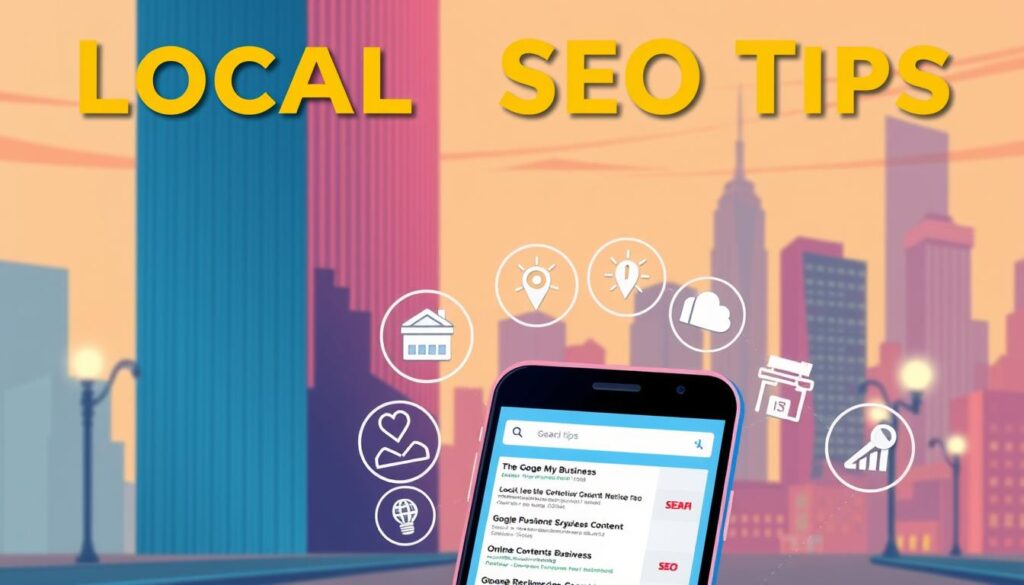In today’s digital age, a decent website is crucial for making a strong first impression. Hiring professional web designers can save you time and money while boosting your business credibility. This guide will help you navigate the process of selecting the right web design agency by focusing on key factors such as reputation, pricing, and design quality.
A professional website is more than just a digital presence; it’s a powerful tool that combines design, functionality, and SEO to drive business success. By understanding what makes a web design agency stand out, you can make an informed decision that aligns with your business goals.
Throughout this guide, we’ll explore the essential indicators of an agency’s expertise, ensuring you find a partner that enhances your online presence effectively.
Key Takeaways
- A well-designed website can increase conversion rates by up to 200-400%.
- 75% of users judge a company’s credibility based on its website design.
- A professional website combines aesthetics, functionality, and SEO for optimal performance.
- Consider factors like reputation, pricing, and design quality when choosing an agency.
- An experienced agency can offer expertise and industry insights to enhance your online presence.
Introduction: Why Your Website Matters for Your Business
Your website is the cornerstone of your business’s online presence, serving as the first point of contact for potential customers. In today’s fast-paced digital world, a professional website is essential for making a strong first impression and driving business success. It’s not just about having an online presence; it’s about creating a seamless experience that combines design, functionality, and SEO to engage visitors and convert them into customers.
A well-designed website plays a crucial role in customer acquisition and brand image. It acts as the central hub for your overall marketing strategy, providing a consistent brand experience and driving user engagement. With 75% of users judging a company’s credibility based on its website design, it’s clear that a professional website is vital for building trust and credibility in the competitive online environment.
Moreover, a good website is not just visually appealing but also fully functional and responsive. It should deliver a seamless user experience across all devices, from desktops to mobile phones. By investing in a well-developed website, you’re making a critical long-term investment in your business’s growth and success.
In conclusion, your website is more than just a digital presence; it’s a powerful tool that drives business growth and enhances your online credibility. By understanding the importance of a well-designed website, you can make informed decisions that align with your business goals and help you stand out in the competitive digital landscape.
Defining Your Business Goals and Project Scope
Before engaging with a design agency, it’s essential to clearly define your business goals and project scope. This ensures everyone involved understands what needs to be achieved. A well-defined scope helps prevent misunderstandings and ensures the final product meets your expectations.
Identifying Business Objectives
Your business objectives should guide your website project. Ask yourself what you want to achieve—whether it’s increasing sales, improving brand awareness, or providing better customer service. Clear objectives help the design agency focus on what matters most to your business.
Determining Necessary Website Features
Next, outline the features your website needs. Consider whether you need e-commerce functionality, a content management system (CMS), or responsive design. These decisions will shape the project and ensure your website meets your business needs.
Aligning Branding and Design Vision
Your website should reflect your brand’s identity. Share your branding guidelines with the design agency to ensure the design aligns with your vision. This includes your logo, colour scheme, and tone of voice.
Breaking the Project into Steps
Divide the project into manageable steps. This approach helps track progress and ensures the project stays on schedule. Regular check-ins with the agency can help address any issues early on.
Understanding Client Needs and Industry Trends
Understanding your clients’ needs and staying aware of industry trends is crucial. This insight helps set realistic goals and ensures your website meets user expectations.
By defining your business goals and project scope, you set the foundation for a successful website project. This clarity ensures your website not only looks good but also delivers real results for your business.
What to Look for in a Web Design Agency
When searching for a web design agency, there are several key factors to consider. A reliable agency should deliver high-quality website design, responsive layouts, and engaging content that resonates with your audience. Here’s how to evaluate potential partners and choose the best fit for your needs.
A strong portfolio is essential. Look for agencies with a diverse range of projects that demonstrate their ability to adapt to different styles and industries. This shows flexibility and a deep understanding of modern design trends. Additionally, pay attention to user reviews and testimonials to gauge client satisfaction and the agency’s ability to meet expectations.
Responsive design is non-negotiable in today’s mobile-first world. Ensure the agency creates sites that are fully optimised for all devices, providing a seamless user experience. A well-structured, conversion-optimised site can significantly boost your online performance, driving more leads and sales.
Comparing multiple agencies can help you assess quality and find the best value. Request samples of their previous work and evaluate the creativity, functionality, and overall user experience. This process will help you identify an agency that aligns with your vision and goals.
Evaluating Agency Reputation and Experience
How can you be sure an agency is reliable? The answer lies in their track record. A company’s reputation and experience are key indicators of their credibility and ability to deliver quality work.
Checking Years in Business and Past Clients
Start by examining how long the agency has been in business. A company with a strong history often has a refined process that ensures successful projects. They are more likely to understand your needs and deliver results. Don’t forget to check their past clients and read testimonials. These insights can reveal a lot about their work quality and client satisfaction.
Assessing Design Awards and Recognitions
Industry awards and recognitions are another important factor. They demonstrate a company’s expertise and commitment to excellence. Look for awards from reputable organisations like the Webby Awards or the American Advertising Awards. These accolades highlight an agency’s ability to create outstanding designs that stand out in the industry.
| Indicator | Importance | How to Assess |
|---|---|---|
| Years in Business | High | Check the agency’s website or LinkedIn profile |
| Past Clients | High | Review case studies and client testimonials |
| Industry Awards | Medium | Look for recognised awards on their website |
| Work Process | High | Ask about their project management process |
A reputable agency’s consistent performance often justifies slightly higher costs. Their refined work process and proven results can make a significant difference in the success of your project. Remember, a reliable agency will always prioritise quality and client satisfaction.
Assessing Design Quality and User Experience
A website’s success hinges on two critical elements: its visual appeal and its functionality. While a stunning design captures attention, it’s the seamless user experience that converts visitors into customers. This section delves into how to evaluate both aspects to ensure your website excels in both areas.
Usability and Responsive Design
A user-friendly website is essential for keeping visitors engaged. Ensure the site is responsive, adapting effortlessly to all devices. A responsive design ensures that your website looks and functions well on desktops, tablets, and mobile phones. Studies show that 57% of users won’t recommend a business with a poorly designed mobile site, making responsive design non-negotiable. Additionally, a site that loads quickly is crucial; a delay can lead to a 7% drop in conversions.
Creative Aesthetics and Modern Trends
Creative aesthetics play a significant role in capturing user interest. Modern design trends can enhance your website’s appeal without compromising functionality. For instance, minimalistic layouts and micro-interactions can create an engaging yet uncluttered user experience. However, aesthetics should never overshadow usability. Striking the right balance ensures your website is both visually appealing and functional.
Conversion-Optimised Layout
A well-structured layout is key to turning visitors into leads and sales. Elements like clear calls-to-action, intuitive navigation, and strategic content placement are vital. Data shows that effective design can improve conversion rates by 200-400%. By focusing on user-centric design principles, you can create a website that not only attracts visitors but also encourages them to take action. For more insights on avoiding common pitfalls, visit this resource.
Prioritising SEO and Mobile-Friendly Development
In today’s competitive digital landscape, your website’s visibility and performance hinge on two critical factors: SEO and mobile-friendly design. These elements are not just beneficial—they are essential for driving traffic, engagement, and conversions.
Implementing Technical SEO Best Practices
Technical SEO lays the groundwork for your website’s search engine rankings. By optimising elements like page speed, site structure, and keyword placement, you can significantly improve your site’s visibility. Tools like Google Lighthouse provide valuable insights to enhance your site’s performance, ensuring it meets search engine standards.
Ensuring Mobile-Optimised User Journeys
With over 50% of global web traffic coming from mobile devices, a mobile-friendly design is crucial. Google’s mobile-first indexing means your site’s mobile version is the primary reference for rankings. A responsive design ensures seamless user experiences across all devices, reducing bounce rates and improving engagement.
Investing in proper SEO and mobile optimisation saves costs in the long run. By planning your budget around these elements, you can avoid future marketing expenses. Prioritising these aspects ensures your website remains competitive and user-friendly, driving sustained growth and success.
Reviewing Portfolios and Case Studies
When evaluating a potential web design partner, there’s no better way to gauge their capabilities than by examining their past work. A portfolio offers a window into an agency’s style, technical skills, and ability to deliver results. By reviewing detailed case studies, you can gain insights into how they approach challenges and create solutions that drive success.
Analysing Previous Projects
Start by examining the diversity of projects in their portfolio. A good web designer should showcase work across various industries, demonstrating adaptability and a deep understanding of different market needs. Pay attention to how each project was executed and the results achieved. This will help you understand if their approach aligns with your business goals.
It’s also important to ask questions about the team behind the work. Understanding the roles each person played can give you confidence in their collaborative process and expertise. A cohesive team effort often leads to more comprehensive and effective solutions.
Verified sources and testimonials are invaluable. They provide an unbiased view of the agency’s performance and client satisfaction. Look for quantifiable outcomes in their case studies, such as increased conversion rates or improved user engagement, to assess their impact.
| Aspect | Importance | How to Assess |
|---|---|---|
| Project Diversity | High | Review the range of industries and project types |
| Technical Competence | High | Evaluate the complexity and innovation of solutions |
| Client Feedback | High | Check testimonials and case study results |
In conclusion, a thorough review of an agency’s portfolio and case studies is essential. It not only reveals their design style and technical abilities but also their ability to meet client needs and deliver measurable results. By doing your due diligence, you can make a more informed decision and find a partner that truly enhances your online presence.
Understanding Pricing Structures and Budget Considerations
When investing in a website, it’s crucial to understand the pricing structures and budget considerations. A well-structured budget ensures you get value for your money while meeting your business needs.
Comparing Costs and Value
Different agencies offer varying pricing models. Some charge fixed fees, while others use hourly rates. Fixed fees provide cost certainty, making them ideal for projects with clear scopes. Hourly rates, however, offer flexibility for evolving needs.
| Pricing Model | Pros | Cons |
|---|---|---|
| Fixed Fee | Cost certainty, clear project scope | Changes may incur extra costs |
| Hourly Rate | Flexible for evolving needs | Unpredictable total costs |
Hidden Fees and Flexible Payment Options
Be wary of hidden fees, such as maintenance or additional features. Discuss these upfront to avoid surprises. Flexible payment options, like staged payments, can help manage your budget effectively.
Investing in quality may mean higher initial costs, but it often leads to better long-term results. Balance your budget with the value and quality you expect to ensure your website meets your business goals.
Checking Communication and Project Management Processes
Effective communication and a well-structured project management process are vital for the success of your website project. These elements ensure that your vision is realised smoothly and efficiently.
Assessing Responsiveness and Clarity
Pay attention to how promptly the web design agency responds to your inquiries. Clear communication from the start indicates their commitment to your project. During initial interactions, evaluate their approach to addressing your needs and how they articulate their process.
Project Timelines and Milestones
A reliable agency will outline defined project timelines and milestones. Regular updates and scheduled meetings help keep your project on track, ensuring transparency and accountability throughout the process.
Customer Service and Support
Robust customer service is essential, both during and after the website launch. Ensure the agency offers post-launch support to address any issues that may arise. This support is crucial for maintaining your website’s performance and user experience.
| Aspect | Importance | How to Assess |
|---|---|---|
| Communication Style | High | Evaluate responsiveness and clarity in initial interactions |
| Project Management Process | High | Review timelines, milestones, and progress updates |
| Customer Support | High | Ask about post-launch support and maintenance services |
By prioritising clear communication and structured project management, you minimise misunderstandings and ensure timely delivery. This approach fosters a collaborative relationship, leading to a successful website project that meets your business objectives.
Importance of Aftercare and Ongoing Support
Once your website is live, the journey doesn’t end. Reliable aftercare and ongoing technical support are vital to ensure your site remains secure, updated, and performs optimally. This ongoing service is crucial for adapting to new software versions and security updates, which are essential in today’s fast-evolving digital landscape.
Common aftercare services include regular maintenance, updates, and technical support. These services help prevent downtime and technical issues that could harm your business. For instance, regular updates ensure your website stays ahead of security threats, while maintenance keeps it running smoothly.
A well-supported website is more than just a business asset—it’s a tool that continues to drive conversions and leads.Consider whether your service provider offers flexible support packages and post-launch training. These elements ensure you’re well-equipped to manage and enhance your website over time.
| Service Type | Importance | Assessment |
|---|---|---|
| Maintenance | High | Regular checks for optimal performance |
| Updates | High | Implementation of security and feature updates |
| Technical Support | High | Availability for troubleshooting issues |
By investing in ongoing support, you protect your business from potential risks and ensure your website continues to thrive. A well-maintained website not only enhances user experience but also builds trust with your clients, driving sustained growth and success.
Navigating Contract Terms and Flexibility
When entering into a contract with a web design agency, understanding the terms and conditions is crucial. A clear agreement ensures both parties are on the same page, preventing potential disputes down the line. This section will guide you through the fine print, ensuring you understand your rights and the flexibility offered by the agency.
No Lock-In Clauses and Open Source Platforms
Long-term contracts with inflexible terms can be detrimental to your business. Look for agencies that avoid lock-in clauses, allowing you to terminate the agreement without hefty penalties. Open-source platforms like WordPress offer greater flexibility and ownership of your website’s source code, which is essential for maintaining control over your brand’s online presence.
Terms of Service and Cancellation Policies
Transparency in contract terms reflects an agency’s credibility. Ensure the agreement includes clear cancellation policies and access to your website’s source code. This ensures you can move to another provider without losing your brand’s digital assets. For more insights on contract negotiation, visit this resource.
| Contract Element | Importance | Assessment Criteria |
|---|---|---|
| No Lock-In Clauses | High | Avoids long-term commitments without flexibility |
| Open Source Platforms | High | Ensures ownership and customisation rights |
| Clear Cancellation Policies | High | Outlines termination terms and conditions |
| Source Code Access | High | Grants full control over your website |
In conclusion, prioritising transparency and flexibility in contract terms is vital. By carefully reviewing the agreement and understanding your rights, you can make an informed decision that aligns with your business goals and ensures long-term success.
Conclusion
Creating a compelling online presence is more than just building a website—it’s about crafting a digital experience that resonates with your audience and drives business success. A superior website is a harmonious blend of stunning design, seamless functionality, and strategic marketing, all working together to enhance your business reputation and boost revenue.
When choosing a web design agency, remember to focus on clear communication, robust aftercare, and flexible contract terms. These elements are non-negotiable for a smooth and successful project. The right agency will not only create a visually appealing site but also ensure it’s optimised for conversions and growth.
Use this guide as your checklist to evaluate potential partners. By prioritising quality, transparency, and expertise, you’ll find an agency that aligns with your goals. Remember, investing in the right web design agency is an investment in your business’s future—leading to better conversions, stronger customer relationships, and sustained growth.
For more insights on evaluating web design agencies, visit our resource: What to Look Out for When Evaluating a Web Design.
FAQ
How can I ensure my website is optimised for search engines?
A reputable web design agency will incorporate SEO best practices into your site’s design and structure. This includes keyword research, meta tags, and mobile-friendly layouts to improve your search engine rankings.
What makes a website user-friendly?
A user-friendly website focuses on usability and responsive design. It should load quickly, be easy to navigate, and provide a seamless experience across all devices, ensuring visitors stay engaged and convert into customers.
How much does hiring a web design agency cost?
Costs vary depending on your project scope, design complexity, and the agency’s experience. Always ask for a detailed breakdown of pricing to ensure transparency and value for your budget.
What questions should I ask during a consultation?
Ask about their experience in your industry, their approach to user experience, and how they measure success. Also, inquire about their project management process and communication style to ensure alignment with your needs.
How long does it take to build a website?
The timeline depends on the size and complexity of your project. A good agency will provide clear milestones and keep you updated throughout the process to meet your deadlines.
Can I see examples of previous work?
Yes, a professional agency will have a portfolio showcasing their past projects. Review these to assess their design quality, creativity, and ability to deliver results for clients in your industry.
What happens after my website launches?
Reputable agencies offer post-launch support, including maintenance, updates, and SEO monitoring. This ensures your site remains secure, functional, and optimised for performance.
How do I know if an agency is the right fit for my business?
Look for an agency that understands your brand, aligns with your business goals, and demonstrates a track record of delivering successful projects. Pay attention to their communication and how well they listen to your needs.
Are hidden fees common in web design projects?
Transparent agencies will outline all costs upfront. Always review the contract carefully and ask about any potential additional fees before signing to avoid surprises.
Can I make changes to my website after it’s launched?
Yes, most agencies provide content management systems (CMS) or training to allow you to make minor updates. For larger changes, they may offer ongoing support or maintenance packages.










